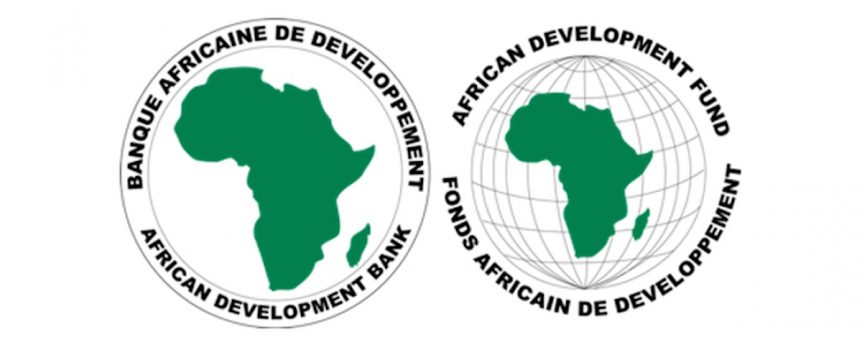50 civil society organizations (CSOs) have signed an open letter calling on the African Development Bank (AfDB) to hold a genuine consultation of stakeholders on the implementation review of the Bank’s Disclosure and Access to Information (DAI) Policy.
The letter calls for the AfDB to ensure information about the Implementation Review Process is publicly available to stakeholders, including in local and regional languages; and the information should include materials, timelines, and opportunities for stakeholders to engage with the Bank. The CSOs also urge the AfDB to ensure that a wide range of stakeholders, including civil society and affected communities across the continent, are meaningfully consulted on the implementation review process, in such a way as to ensure they can properly contribute to it.
10 May 2021
African Development Bank
Records Management and Information Disclosure Secretariat
Avenue Joseph Anoma
01 BP 1387 Abidjan 01
Côte d’Ivoire
Re: Concerns Over Stakeholder Consultations on Implementation Review of the Disclosure And Access To Information Policy
Dear Records Management and Information Disclosure Secretariat,
We are writing to express our concerns with the process of stakeholder engagement and consultation surrounding the Implementation Review of the African Development Bank’s Disclosure and Access to Information (DAI) Policy.
We are human rights and environmental organizations that directly support communities affected by the African Development Bank (AfDB) projects and as such, have seen firsthand that meaningful access to information and stakeholder engagement are vital to ensuring rights-respecting and truly sustainable development. Many of our organizations have monitored AfDB projects for many years and have engaged in a number of policy processes to strengthen the accountability and transparency of the AfDB. We have witnessed the devastating impacts that can occur when the fundamental building blocks for transparency and accountability are absent. It is for these reasons that we deem it critical that the consultation processes around the AfDB’s DAI Policy are meaningful, robust, and open to a wide range of civil society stakeholders who can provide valuable feedback on strengthening the AfDB’s disclosure practices and policy.
It was alarming to learn from the Records Management and Information Disclosure Secretariat in response to International Accountability Project’s draft analysis of the AfDB’s information disclosure practices that the implementation review of the AfDB’s DAI Policy is underway, and that consultations with civil society groups ended in March whereas information on the review process, timeline, and opportunities for engagement were not made publicly available, despite the process requiring consultation with civil society organizations. To say the least, this is concerning, counter-intuitive and unfortunate, since this process is about increasing access to information and transparency. In addition, it points to the fact that the AfDB management is hesitant to engage with broader civil society organisations through public consultations, as it happened during the last DAI policy review in 2010.
Given the importance of this process for communities affected by AfDB projects and the civil society groups who support them, we urge the AfDBt to:
- Make publicly available, including in local regional languages, information about the Implementation Review Process, including materials, timelines, and opportunities for stakeholders to engage.
- Ensure that a wide range of stakeholders, including civil society and affected communities across the continent, are consulted and can meaningfully contribute and inform the implementation review process, preferably through two rounds of consultations of 45 days each
- Improve overall stakeholder engagement and simplify information and project details during consultations, more especially for those that involve local communities. ● Encourage the country offices to be more civil society friendly and engage more with the civil society on the ground.
Sincerely,
- Abibinsroma Foundation (Ghana)
- Accountability Counsel (USA)
- African Forum and Network on Debt and Development (Africa)
- Arab Watch Coalition (MENA)
- ARTICLE 19 (Kenya, Senegal, Tunisia, UK)
- Association Talassemtane pour l’environnement et le développement (Morocco) Association Tunisienne de Droit du Développement (Tunisia)
- ATGL Tunisia (Tunisia)
- Bank Information Center (Global)
- Botswana Watch Organization (Botswana)
- Buliisa Initiative for Rural Development Organisation (Uganda)
- Cairo Institute for Human Rights Studies (MENA)
- Center for International Environmental Law (Global)
- Centre de Recherches et d’Appui pour les Alternatives de Développement – Océan Indien (Madagascar)
- Centre for Human Rights and Rehabilitation (Malawi)
- Centre for Human Rights, University of Pretoria (South Africa)
- Centre for Research and Advocacy Manipur (Manipur)
- Centre for Social Accountability and Transparency (Malawi)
- Community Initiatives for Sustainable Development (Kenya)
- Enda Lead Afrique Francophone (Senegal)
- Endorois Welfare Council (Kenya)
- Espace de Solidarité et de Coopération de l’Oriental (Morocco)
- Foundation for Environmental Management and Campaign Against Poverty (Tanzania) Foundation For Environmental Rights, Advocacy and Development (Nigeria) Foundation for the Conservation of the Earth (Nigeria)
- Global Rights (Nigeria)
- Green Advocates International (Liberia)
- Initiative for Climate Action and Development (Malawi)
- International Accountability Project (Global)
- International Rivers (USA)
- IRPAD & Coalition des OSC africaines sur la BAD (Mali)
- Jamaa Resource Initiatives (Kenya)
- LawAge Consult & Advocates (Tanzania)
- Lumiere Synergie pour le Developpement (Senegal)
- Mazingira Network – Tanzania (Tanzania)
- Nature Tropicale ONG (Benin)
- Network Movement for Justice and Development (Sierra Leone)
- Observatoire d’etudes et d’appui a la responsabilite sociale et environnementale (Democratic Republic of the Congo)
- Oil Workers’ Rights Protection Organization Public Union (Azerbaijan) Oyu Tolgoi Watch (Mongolia)
- Peace Point Development Foundation (Nigeria)
- Phenix Center for Economic and Informatics Studies (Jordan ) Resonate!Yemen (Yemen)
- Sustainable Holistic Development Foundation (Tanzania)
- Tensift Regional Centre for Development (Morocco)
- Ugandan Consortium On Corporate Accountability (Uganda)
- Witness Radio – Uganda (Uganda)
- Women Action Towards Economic Development (Tanzania)
- Yemeni Observatory for Human Rights (Yemen)
- Zambian Network for Human Rights Defenders (Zambia)
Individuals
- Houda BELGHAJI – Energy expert, Arab Watch Coalition founding member (Tunisia)
Share this Post

